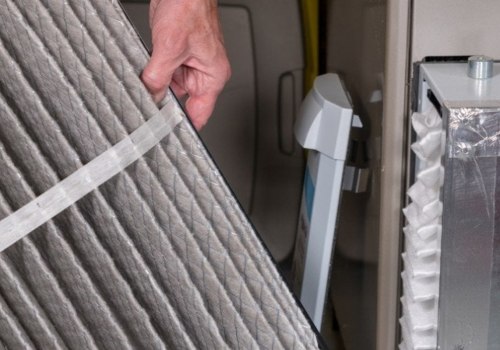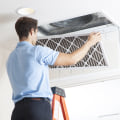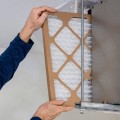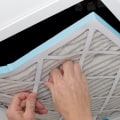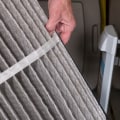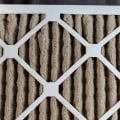MERV 11 air filters may not be able to trap as many tiny particles as a HEPA filter, but they are cost-effective and work with a variety of types of HVAC systems. HEPA filters are considered to be the best of the best when it comes to HVAC air filters, as they can capture airborne contaminants as small as 0.3 microns in diameter. To put this into perspective, the average strand of hair on the head is approximately 45 microns. Most residential HVAC systems use MERV rated filters.
MERV stands for Minimum Efficiency Reporting Value, and it is important to remember that the higher the MERV rating, the better the filtration. A filter with a MERV rating of 13 to 16 is considered a high-range MERV filter and can remove up to 75 percent of all airborne particles 0.3 microns or greater from the air. The problem is that HEPA filter media is too thin to be implemented in existing HVAC systems, and the only way to add one to an installation is through a standalone or portable HEPA air filtration system with its own dedicated fan designed to increase the resistance of this type of filter. The MERV rating of an air filter describes its efficiency in reducing the level of particles from 0.3 to 10 microns in the air passing through the filter.
Considering the threat posed by the spread of COVID-19 and other germs, upgrading a building's air filter to a HEPA is a much more effective step than just a MERV 13, considering the small size of a virus (0.06-0.12 microns). The purpose of the MERV standard is to allow an apple-to-apple comparison of the filtering efficiency of various air filters. It is also recommended to run the system fan longer, or continuously, since HVAC systems filter air only when the fan is running. With an air cleaner in a room, fewer contaminants reach the HVAC system filter, possibly extending its life and that of the system as a whole.
Air filter efficiency refers to its relative ability to remove particles of a given size or range of sizes from the air passing through it. Knowing the difference between MERV and HEPA filters will help you select the right option for your home in St. Louis. Before making any changes to an HVAC system's air filter, users should consult their HVAC manual or an HVAC professional.
Remember that the air in your home is recirculated, so it will pass through the filter several times a day. ASHRAE or MERV air filters are tested using dust spot tests that incorporate fine dust, powdered charcoal and some cotton lint. A filter with a MERV rating of five to eight will effectively remove a variety of allergens from the air, including dust mites and pollen. This high rate of particulate capture comes at a cost; HEPA filters have more resistance to airflow than MERV filters. A filter with a high MERV rating is especially recommended for households with allergies and asthma.
It is strongly recommended to consult an HVAC engineer before attempting to upgrade any air filter.



